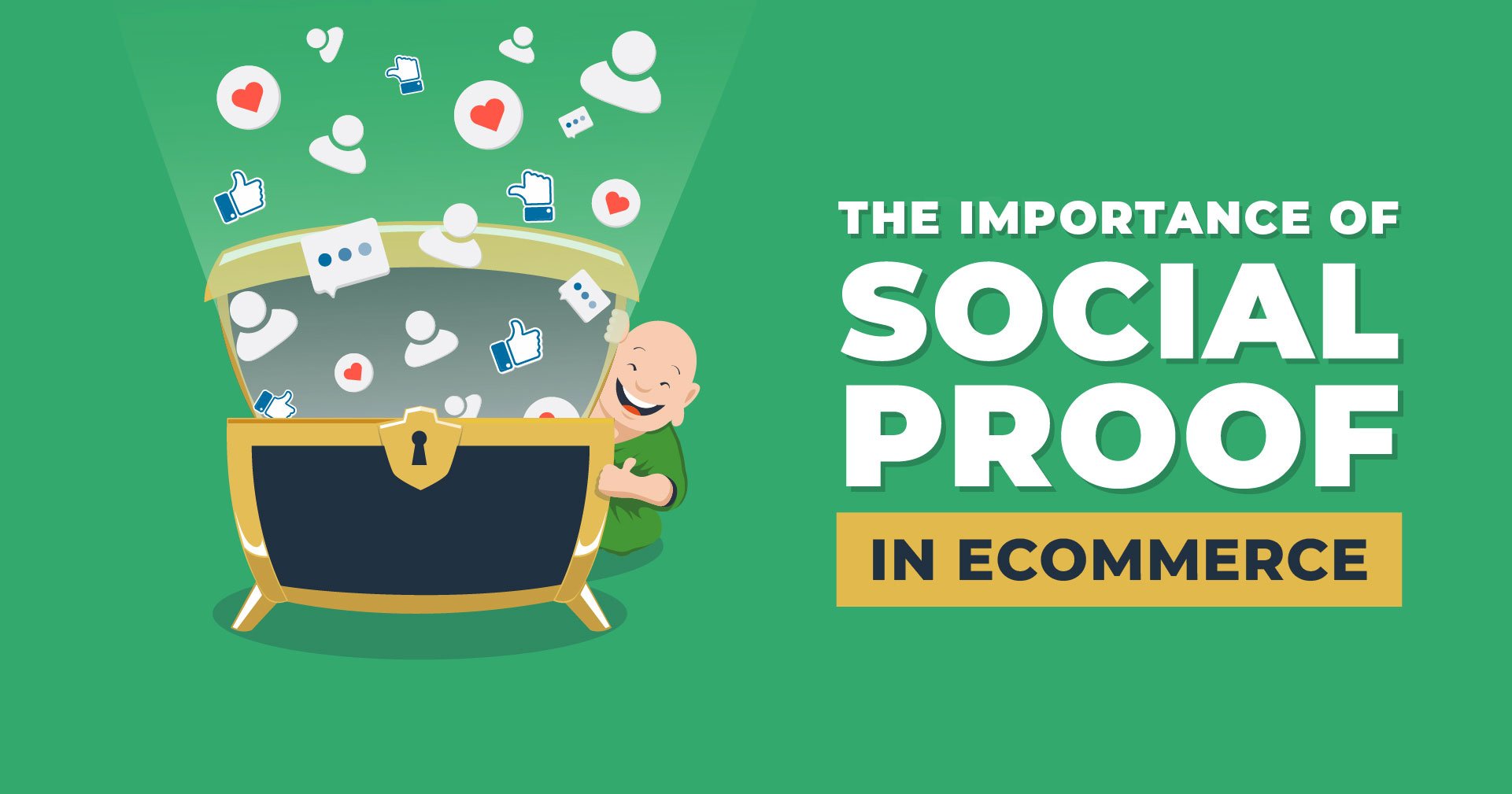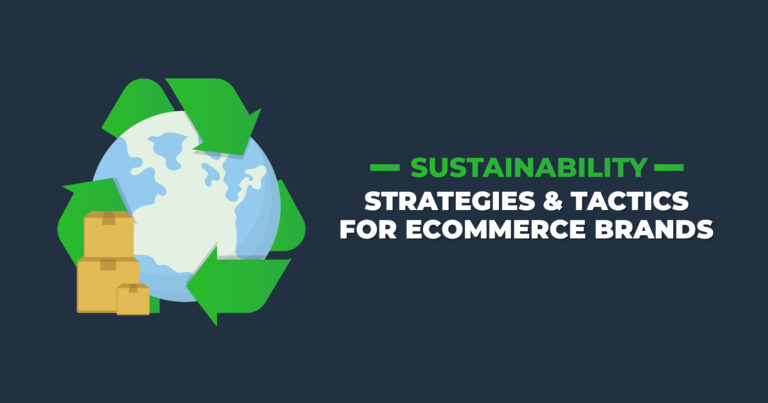The Importance of Social Proof in Ecommerce
Did you know that 93% of consumers say that online reviews influence their purchase decisions? That’s a mind-blowing statistic. Why are other people’s opinions so darn important to us? What can ecommerce businesses do to leverage this power?
It starts with an admission that, from a consumer standpoint, shopping online can be risky. Every time we buy something online, we’re gambling that what we see is what we’re going to get. We spend a lot of time researching products before we buy, but in the end we may still feel uncertain. And when we feel uncertain, humans tend to look for examples of what others in our situation have done. We look for “proof” that we’re making a good decision. That, in a nutshell, is why ecommerce businesses cannot afford to ignore the importance of social proof.
In this article we’ll explore the definition of social proof and its importance in influencing shopping decisions. We’ll give you some examples of social proof, and we’ll even rank them in terms of trustworthiness. So, at the risk of sounding like an influencer, follow us and hit that like button!
What is Social Proof?
Social proof is the result of what psychologists call the herd mentality. If everyone is standing in line at a restaurant, that proves the food must be good, right? Such reasoning has served humankind well since the days of the cave man and played a big part in the survival of our species. Humans have a natural attraction (psychologists call it a cognitive bias) toward products and services that other people like. Over millions of years of evolution, we have found that there is safety in numbers. In fact, 68% of people say they’re even willing to pay more for certain products if the company has a good reputation.
Interestingly, the less your customers know about your product, the more important social proof becomes. In the service industry, such as here at ShipMonk, potential clients are making a much larger decision than a new pair of jeans. Sure, we can talk endlessly about our warehouse automation and cool robotics, outstanding service, or award-winning warehouse management system, but that’s not nearly as believable as our case studies and customer testimonials. The proof is in what our clients say about us.
Of course, sometimes following the herd can lead us astray. (Low-cut jeans come to mind.) After all, opinions are subjective; they can be wrong, and they can change on a whim (or a single post from an influencer). That’s where another bias comes into play, particularly in the fashion world. Humans have a powerful need to fit in with whatever group they’ve joined. Psychologists call this phenomenon, “conformity bias.” It’s what causes us to replace our jeans and change our hairstyles every few years. We know it makes no sense, but we do it anyway. Conformity bias is what makes the fashion industry tick, and many ecommerce businesses benefit from it. All you have to do is point out which way the herd is moving.
Now that we’ve established that social proof is an important tool for influencing consumer behavior, it follows that smart ecommerce companies can, and should, take advantage of these natural biases. Adding social proof to your website, product pages, and marketing tools builds trust in your product. There are many ways to go about this.
Social Proof Examples, Ranked
Social proof can take many forms, and they’re not all equal. Some can be trusted more than others. Some are more effective than others. Some can be bought, and some must be earned. Below is a list of social proof examples to consider adding to your marketing toolkit.
We’ve ranked them in order of their trustworthiness, starting with those that are generally considered the most trustworthy. Note that trustworthiness is not the same as effectiveness (nor is this an official list, just our subjective viewpoint). Some forms of social proof may be highly effective for your business even though they’re not necessarily trustworthy. It all depends on what you’re selling, who your audience is, and whether you’ve been around long enough to garner fans and accolades.
1. Referrals
One of the first things consumers do when making a big purchase is ask friends and family for recommendations. Why? Because they know these people and trust their opinions. They might also seek referrals from others who have used that same product or service. A referral is usually made through direct contact, whether in the form of an email exchange, online chat, phone call, or face-to-face visit. Referrals work best when a customer is considering a large-ticket item or when service is a key component of the product offering, so if that describes your business, consider offering them to your customers.
2. Third-Party Research
By this we mean studies or product rankings conducted by independent sources, such as those conducted by Consumer Reports, CNET, or Wirecutter. These companies test and compare hundreds of products and rank them by criteria that may be hard to find on the products web page, such quality, durability, and value. The best product ratings are conducted by groups that have nothing to gain by ranking your product or service. Many product rating sites that appear to be independent, however, take money from advertisers or accept free products. If that’s the case, this should be revealed in the rating or review.
3. Customer Testimonials
With a large purchase or service, customer testimonials can be highly effective because they usually give context about how your product or service solved a problem that future customers find relatable. They’re also more trustworthy because they’re usually not anonymous (like many reviews are) and the facts can be verified. If you use testimonials, make sure they’re legit — that is, make sure the customer actually purchased the product and you have their permission to use their name and/or business in the testimonial.
4. Reviews
In general, good reviews are highly effective at drawing new customers toward your product and are one of the easiest forms of social proof to implement. They fall further down the trustworthiness scale because they can be faked by bots, or skewed by a few disgruntled customers or an unscrupulous competitor. While 93% of consumers say that online reviews influence their purchase decisions, they are getting better at spotting fake reviews: 54% of consumers are confident they’ve seen fake reviews on Amazon, 50% have seen them on Google, and 42% on Facebook. Keep in mind that it is illegal to post fake reviews, or to pay people to write positive reviews.
5. Case Studies
A case study is an in-depth reveal of how your product or service was implemented, with quantifiable results that show how it improved a customer’s situation. It might take the form of a personal story that demonstrates the quality of your product, a series of before/after photos, or a client success story that wouldn’t have happened without your help. Case studies are particularly important in the service industry, but also can be effective when product quality or effectiveness is in question. But faked before/after photos are the bane of social media.
6. Awards
If your business receives an award or is recognized for service or excellence of any kind, by all means publish the news.
7. Social Media Stats
An impressive number of followers is not necessarily a sign of success when it comes to social media. Engagement, (the number of likes, clicks, or purchases you get on your posts) is a far better metric for determining the value of that sales channel. The younger your audience, the more likely you are to generate new customers on social channels. In 2022, TikTok surpassed Google as a primary source of information for Gen Z. Also keep in mind that short-form videos (like those on YouTube, Instagram and TikTok) generate the highest return on investment. You can learn more about your followers and their engagement by using third party tools like Hootsuite or Social Pilot, or built-in analytics tools available on each social platform.
8. Influencers
Influencers can be highly effective at sending new customers your way, because they are liked and trusted by their followers. Ironically, they are among the least trustworthy sources of information because most of them get paid for posting sponsored content and engaging in brand partnerships. That said, according to Brandwatch, 21% of social media users aged 18-54 made a purchase based on an influencer’s recommendation in the last 3 months of 2022. The good news for brands is that the smallest influencers (those with 1,000-4,999 followers) are more effective at creating trust and generating engagement and also the least expensive to partner with. Skepticism is growing with the entire influencers category, however. Sixty-three percent of respondents to a recent survey said they noticed an increase in sponsored content from influencers on social media in the past year, up from 53% in 2020. As brand deals increase, concerns about influencers’ genuineness are rising.
9. Celebrity Endorsements
Unlike influencers, celebrities have earned their popularity for something other than product endorsements, whether it be acting chops, athletic ability or artistic talent. They have millions of followers, but this has nothing to do with the products they use. Since the early days of television, brands have fallen over each other to get celebrity endorsements. Then, as now, the more popular they are, the more money they can demand for their endorsement. The problem with this type of social proof is that everybody knows celebrities get paid to endorse products. It should come as no surprise that celebrity endorsements have the lowest engagement rates. That said, if you happen to land a mention on Oprah’s annual list of favorite things, well, that’s priceless.
Not sure how much this list ranking helps you, other than to say that it’s important to evaluate each form of social proof for its trustworthiness, effectiveness, and cost, then do what’s right for your business. In general, the more trustworthy the better, but it takes time to develop trust. If you’re just starting out, an influencer might be a more effective way to gain traction. Some methods are more effective for fashion brands (social channels and influencers) while others are more effective for home and electronics brands (reviews, third-party research). Beauty brands do best with influencers, case studies, testimonials and celebrity endorsements.
Dos and Don’ts of Social Proof
When adding social proof to your sales channels and product pages, here are a few dos and don’ts to keep in mind.
Don’t underestimate your audience, particularly if, like ShipMonk, you’re appealing to a super-smart audience like business owners. Our clients have built-in BS detectors that can smell an inflated marketing claim a mile away.
Do provide factual information. As we mentioned, the less people know about your product or service, the more important social proof becomes. If you give potential customers enough information to make informed decisions, social proof simply helps them solidify their decision. Product photography, descriptions, specifications, ingredients, fabric content, accurate sizing information—these are all necessary if you want consumers to be able to compare your product with a competitor’s, shop confidently, and like what they’ve bought.
Don’t make grandiose claims or exaggerate your successes, whether you’re talking about sales figures, the health benefits of your product, or your followers on TikTok.
Do ask customers for reviews, but be careful what you ask for. An experiment conducted by Harvard Business Review in 2023 showed that soliciting reviews did increase the overall number of reviews by 8%, but it also reduced the number of extreme (very positive or very negative) reviews by 10%, and resulted in more “average” reviews. Their conclusion was that customers with extremely good or bad experiences were more likely to immediately write a review, while reminders were more likely to reach customers who had an average experience. For this reason, soliciting reviews may do more to help businesses with lower-than-average reviews, while lowering the average for businesses with great reviews.
Don’t fake reviews or offer incentives for positive reviews. It’s illegal. If the reviewer received a free product, disclose that in the review.
Don’t count on celebrity endorsements, unless that celebrity uses your product and has a sterling reputation.
Do play to your company’s strengths, whether that means thousands of five-star reviews, impressive case studies, industry awards, sustainable products, or great customer-satisfaction scores.
ShipMonk Awards
Don’t Take Our Word for It
Do you believe everything you just read? Some of it? Most of it? This is a blog post, after all, written by ShipMonk. In the end, it’s just another form of marketing, like all of the above examples of social proof. So, just like you would with any form of social proof, we encourage you to consider the trustworthiness of the source. What does ShipMonk have to gain by steering ecommerce businesses wrong? Absolutely nothing. What do we have to gain by helping ecommerce businesses grow? Everything!
ShipMonk is a third-party logistics (3PL) and fulfillment company that empowers ecommerce businesses to scale. If you don’t believe us, read what our clients have to say and examine our case studies. Then contact us for a referral, a quote, a software demo, a warehouse tour, or simply an answer to a problem you’re having. We’re here to help you grow, and we’d love the chance to prove it!



